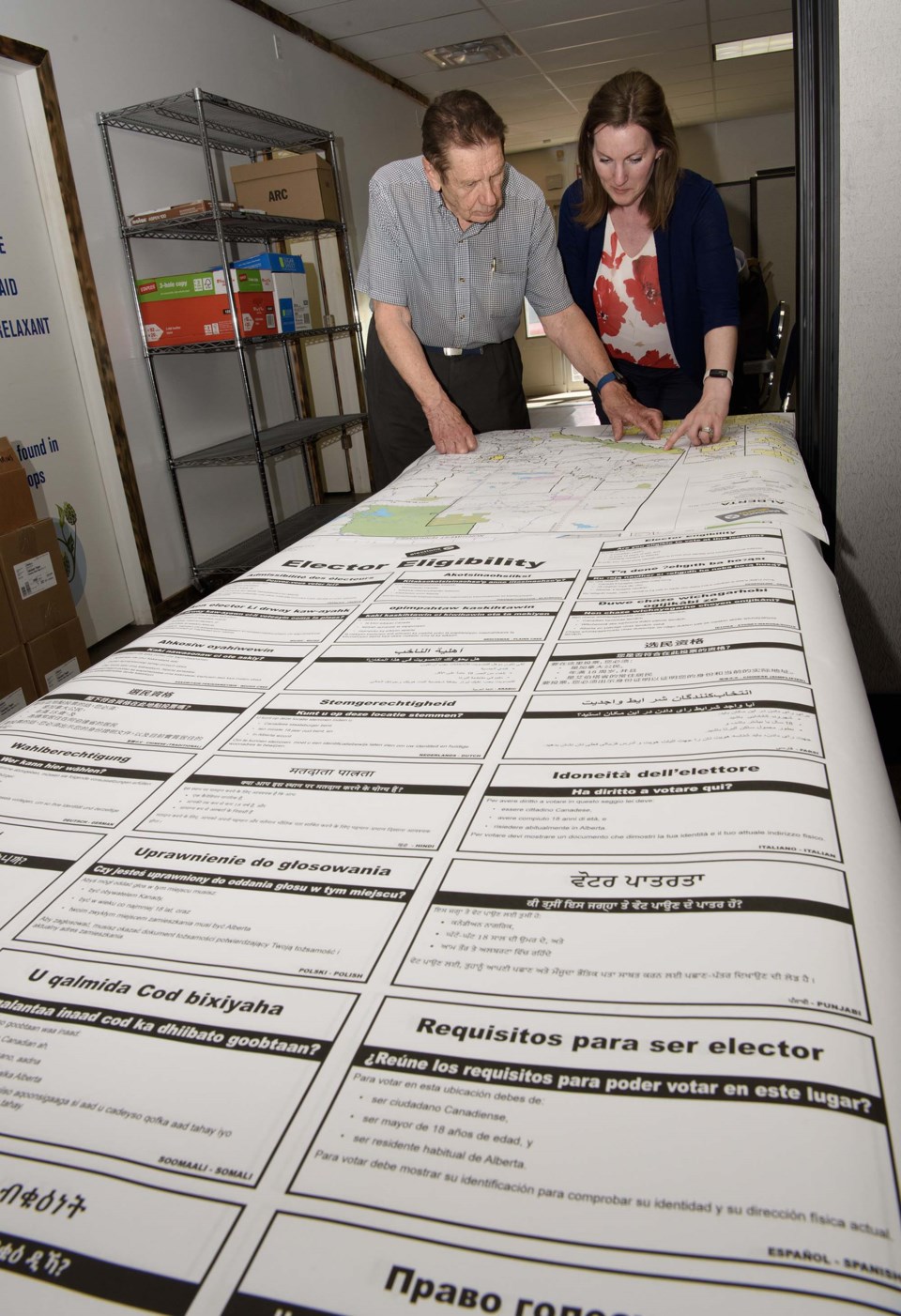Julius Buski is an old hand when it comes to running provincial elections, having served as returning officer for two of them in the Morinville and St. Albert region so far.
He’s back at it again this year, leading some 200 workers to co-ordinate the vote in Morinville-St. Albert.
The Gazette visited Buski at the Morinville-St. Albert returning office at 161 Liberton Drive in St. Albert last week. The place was stuffed with maps and election guides written in 27 different languages (including Michif and Tigrinya), and the phones buzzing with questions from voters and poll workers.
Buski said he and his crew have been gearing up for this election since last summer, scouting out poll locations and reviewing voting areas. Now they were assembling materials, allocating assignments, and accepting special ballots in preparation for the big day.
Vote changes
“This election is different for a number of reasons,” Buski said, many of which stem from the Election Statutes Amendment Act of 2021.
That law specifies that provincial elections shall occur on the last Monday in May four years after the last election, Buski noted — May 29, in this case. The law also replaced the word “poll” with “vote,” so all polls are now called “voting places.”
One of the biggest changes is the requirement for voter identification, Buski explained. Whereas previously anyone could claim to be someone on the voting list and get a ballot, voters will now have to provide physical proof of their identity. This typically means a government-issued ID with your name, current address, and picture (such as a driver’s license), but can also mean two pieces of ID both featuring your name and at least one having your current address. Voters can also have another registered voter vouch for their identity or have someone sign an attestation form for them.
Any Canadian citizen who is 18 or older as of this May 29 and ordinarily lives in Alberta can vote in the provincial election, Elections Alberta reports.
Buski said voters have to register before getting their ballots. This can be done online, by phone, at the returning office, or at the voting station. If you got one of those “register to vote” cards in the mail last month and it had your correct name and address on it, you’re already registered.
Buski said about 40 per cent of Morinville-St. Albert voters chose to vote in the advance poll in 2019, which was the first provincial election to let people vote at any advance poll instead of just their local one. He expected even more people to vote in advance this year, given the convenience of the process.
This year’s advance vote runs from May 23 to May 27. Voters can cast their ballots at any one of 330 stations, including the ones in Servus Credit Union Place and St. Albert Centre in St. Albert, with most stations open from 9 a.m. to 8 p.m. Advance (and regular) vote station locations are available on the Elections Alberta website.
Albertans can also vote by special ballot any time before the close of polls May 29.
Albertans who vote on Election Day will have to do so at their local voting station. Buski said voters should get cards in the mail this month with their station’s location; they can also look it up on the Elections Alberta website.
Buski encouraged people to get out and vote this month, as it was an important for democracy.
“If you don’t vote, you shouldn’t complain later about what the outcome was.”
Visit elections.ab.ca for more on how to vote.




